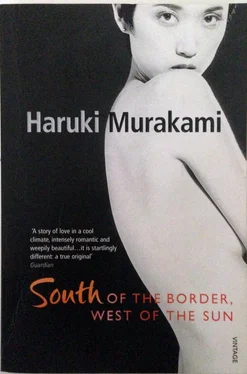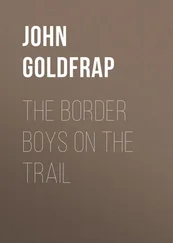“You’re probably right. Shouldn’t force people to do what they don’t want to do,” he replied. It sounded as if he’d anticipated this answer. We were having a few drinks. His son hardly touched liquor, so sometimes the two of us would drink together. “By the way, my company has a building in Aoyama. It’s under construction, should be finished by next month. The location’s good, and it’ll be quite a place. It’s a little off the beaten path now, but the area’s going to grow. I was thinking maybe you could open some kind of store there. It’s company property, so I’ll have to take the going rate for the down payment and rent, but if you’d like to have a go at it, I can lend you as much as you want.”
I thought about it for a while. The possibilities were intriguing.
That’s how I came to open an upscale jazz bar in the basement of a brand-new building in Aoyama. I had worked at a bar in college, so I was familiar with the ins and outs of running a drinking establishment—the kind of drinks and food you should serve, the music and atmosphere, the sort of clientele to shoot for, etc. My father-in-law’s company handled the interior decorating. He brought over a first-rate interior design firm and had them go to it. Their price was surprisingly reasonable, and when the bar was finished, it was a sight to behold.
The bar was more successful than my wildest dreams, and two years later I opened a second one, also in Aoyama. This was a bigger place, featuring a live jazz trio. It took a lot of time and effort, not to mention a great deal of money, but I ended up with a popular, unique sort of club. I’d done a halfway decent job with the opportunity presented to me, and I finally felt able to relax for a moment. Not coincidentally, this was when my first child, a girl, was born. At first I used to help out behind the counter, mixing cocktails, but after opening the second place, I was too busy with the business end. I had to make sure everything went smoothly-negotiating prices, hiring, keeping records. What I liked best was seeing ideas that had sprung up in my head materialize into something real. I even threw in my two cents’ worth regarding the menu. Surprisingly, I wasn’t half bad at this kind of work. I loved the process of starting from scratch, creating something, seeing it through till it was absolutely perfect. It was my bar, my own little world. Think you could find this kind of happiness proofreading school textbooks? No way.
During the day I’d take care of all sorts of chores, then at night I’d make the rounds of my two bars, checking out the cocktails to see that they tasted all right, observing the customers’ reactions, making sure my employees were up to snuff. And I listened to the music. Each month, I paid back some of what I owed my father-in-law; still, I was making a pretty decent profit. Yukiko and I bought a four-bedroom condo in Aoyama and a BMW 320. And had a second child. Another girl. Before I knew what hit me, I was the father of two little girls.
When I turned thirty-six, I bought a small cottage in Hakone and a red Jeep Cherokee for Yukiko, to shop and ferry the kids around. With the profit from my bars I could have opened a third place, but I didn’t plan to expand. Keeping track of all the details of two places was enough; watching over any more would leave me wasted. I was sacrificing enough time to work as it was. I discussed this with my wife’s father, and he suggested I put any extra money into stocks and real estate. It takes hardly any time or effort, he told me. But I knew absolutely zilch about the stock market or real estate. So he said, “Leave the details to me. If you just do as I say, you’ll wind up doing okay. There’s a knack to these kinds of things.” So I invested as he told me to. And sure enough, in a short time I’d racked up a healthy profit.
“Now you get it, right?” he asked me. “There’s a special knack to investing. You could work for a hundred years in a company and never end up doing this well. In order to succeed, you need luck and brains. Those are the basics. But that’s not enough. You need capital. Not enough capital, and your hands are tied. But above all, you need the knack . Without it, all those other things will get you nowhere.”
“Guess you’re right,” I said. I knew what he was getting at. The “knack” he spoke of was the system he’d created. A tenacious, complex system for generating vast sums of money by creating an immense network of contacts, gathering vital information, and investing accordingly. Slipping through the net of laws and taxes, transfiguring itself in the process, the profit thus generated swelled almost beyond measure.
If I hadn’t met my father-in-law, I’d still be editing textbooks. Still living in a crummy little apartment in Nishiogikubo, still driving a used Toyota Corona with an air conditioner on the blink. Now, though, in a short space of time I found myself the owner of two bars in one of the snazziest parts of town, the boss of more than thirty people, and making more money than I’d ever made in my life—or ever dreamed of making. The business was running so well my accountant was impressed, and the bars had a good reputation. I’m not saying I’m the only one who could have done it. Take away my father-in-law’s capital and his “knack,” and I’d never have gotten off the ground.
But I wasn’t entirely comfortable with this arrangement. I felt I was taking a dishonest shortcut, using unfair means to get to where I was. After all, I was part of the late-sixties–early-seventies generation that spawned the radical student movement. Our generation was the first to yell out a resounding “No!” to the logic of late capitalism, which had devoured any remaining postwar ideals. It was like the outbreak of a fever just as the country stood at a crucial turning point And here I was, myself swallowed up by the very same capitalist logic, savoring Schubert’s Winterreise as I lounged in my BMW, waiting for the signal to change at an intersection in ritzy Aoyama. I was living someone else’s life, not my own. How much of this person I called myself was really me? And how much was not? These hands clutching the steering wheel—what percentage of them could I really call my own? The scenery outside—how much of it was real? The more I thought about it, the less I seemed to understand.
Not that I was unhappy. I had no complaints. Yukiko was a gentle, considerate woman, and I loved her. When she gained a bit of weight after giving birth, she started dieting and exercising seriously. A little weight didn’t bother me, though—I still thought she was beautiful. I loved to be with her, and I loved to sleep with her. Something about her soothed me. No matter what, I’d be damned if I’d ever return to the kind of life I had in my twenties—days of loneliness and isolation. This was where I belonged. Here was where I was loved and protected. And where I could love and protect others—my wife and my children—back. Being in such a position was an unexpected discovery, a totally new experience.
Every morning, I drove my older daughter to her private nursery school, the two of us singing along to a tape of children’s songs on the car stereo. Then, before heading out to the small office I rented nearby, I’d play for a while with my younger daughter. In the summer, we’d spend weekends at our cottage in Hakone, watching the fireworks, boating around the lake, and strolling in the hills.
While my wife was pregnant I’d had a few flings, but nothing serious. I never slept with any one woman more than once or twice. Okay, three times, tops. I never felt I was having an affair with a capital A. I just wanted someone to sleep with, the same thing my partners were after. Avoiding entanglements, I chose my bedmates with care. Maybe I was testing something by sleeping with them. Trying to see what I could find in them, and what they could find in me.
Читать дальше












